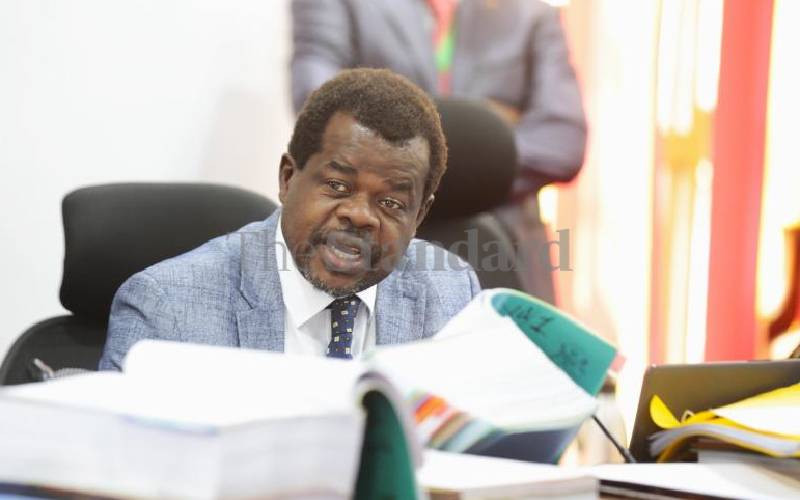The government has been faulted for blaming hiccups experienced in the roll-out of the new medical scheme to Sh30 billion debt owed to hospitals by the defunct National Hospital Insurance Fund (NHIF).
The Health Cabinet Secretary and Principal Secretary yesterday told the court that the government was committed to settling the debt to streamline services under the Social Health Authority (SHA).
This contract aims to provide an Integrated Healthcare Information Technology System for Universal Health Care over the next 10 years. The ministry told Justice Bahati Mwamuye of the High Court that the financial struggles being experienced are not due to the digital system.
“My instructions indicate that the NHIF has incurred pending bills totalling Sh30 billion, which has hindered medical facilities and health providers from offering services due to these outstanding payments,” said lawyer Kioko Kilukumi, representing CS Deborah Barasa and PS Mary Muthoni.
He said the ministry had already disbursed Sh4.5 billion while another Sh4.5 billion would be released by the end of the week.
“As of October 28, 2024, at 5.17pm, 13,338,143 Kenyans have been registered with SHIF (Social Health Insurance Fund).”
He noted that 7,563 healthcare providers, representing 91 per cent of facilities with active licences, are now on board.
Kilukumi said the system has processed 38,400 authorisations, with 93.95 per cent of these finalised. Additionally, Sh1.2 billion worth of claims have been uploaded to the system.
However, Omtatah questioned the ministry’s narrative. “I find it surprising that such significant allegations are being addressed from the bar rather than through an affidavit,” he countered.
“If the SHIF system is functioning as claimed, why was there a need for an extended transition plan? The contract states that the digital system would take two years to implement, yet we are being told it’s ready now.”
Omtatah raised questions about the lack of a transitional period from NHIF, yet the new digital system would take up to two years to set up.
“The SHA system should clarify how it has managed to process billions and establish a functioning system within just one month of signing the contract with the government, especially since their contract explicitly states that a two-year setup period is required. We expect SHA to be fully operational by August 8, 2026, not October 1, 2024.”The petitioners reiterated the need for immediate conservatory orders. Dr Gikenyi, addressing the court from a health facility, termed SHA a scam.
“Recently, I had a patient with cancer who urgently needed surgery. Despite having paid her subscription to the NHIF, she was not included in the SHIF system and could not receive the necessary pre-authorisation. As a result, her surgery has yet to be performed. If this continues, her cancer may progress from stage one to stage two, which could have fatal consequences,” he said.
Justice Mwamuye scheduled the case for hearing on November 22 and ordered the CS to ensure that Kenyans receive medical services. By Nancy Gitonga, The Standard






